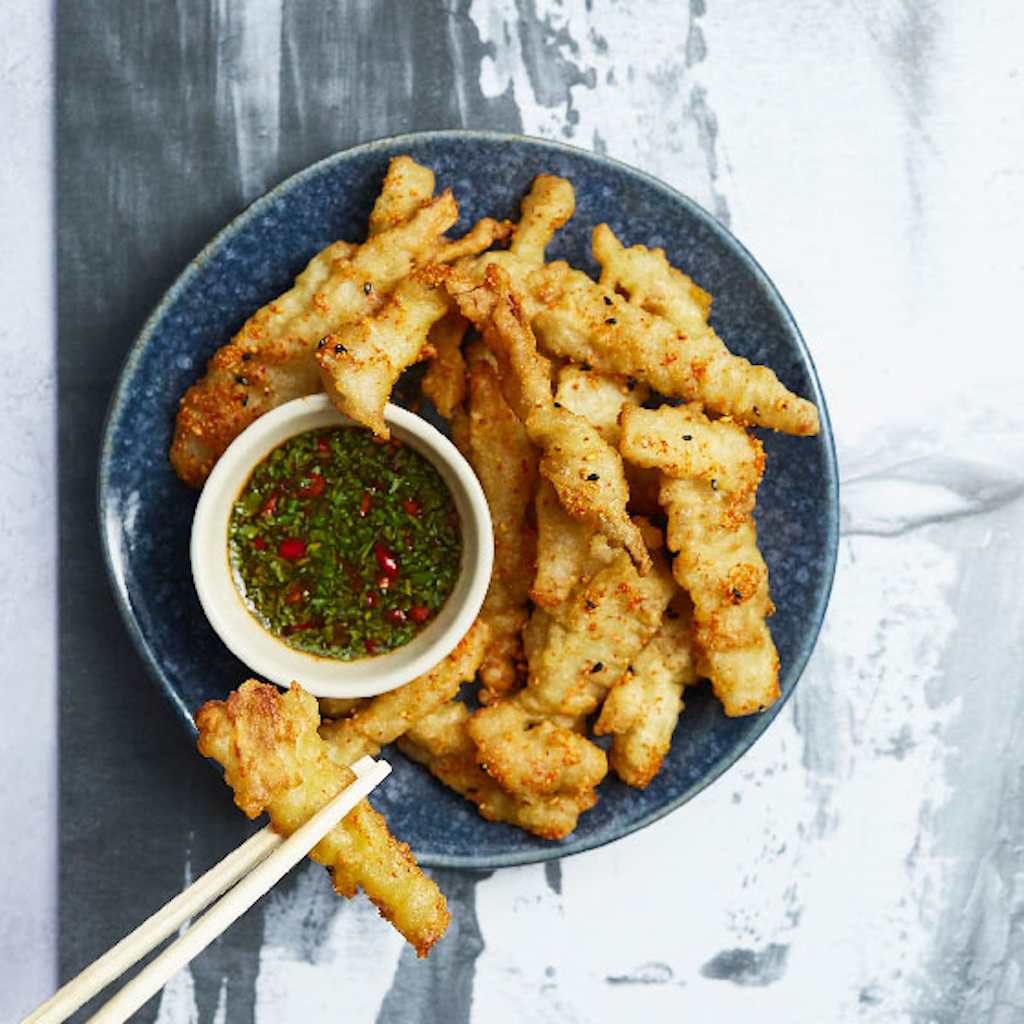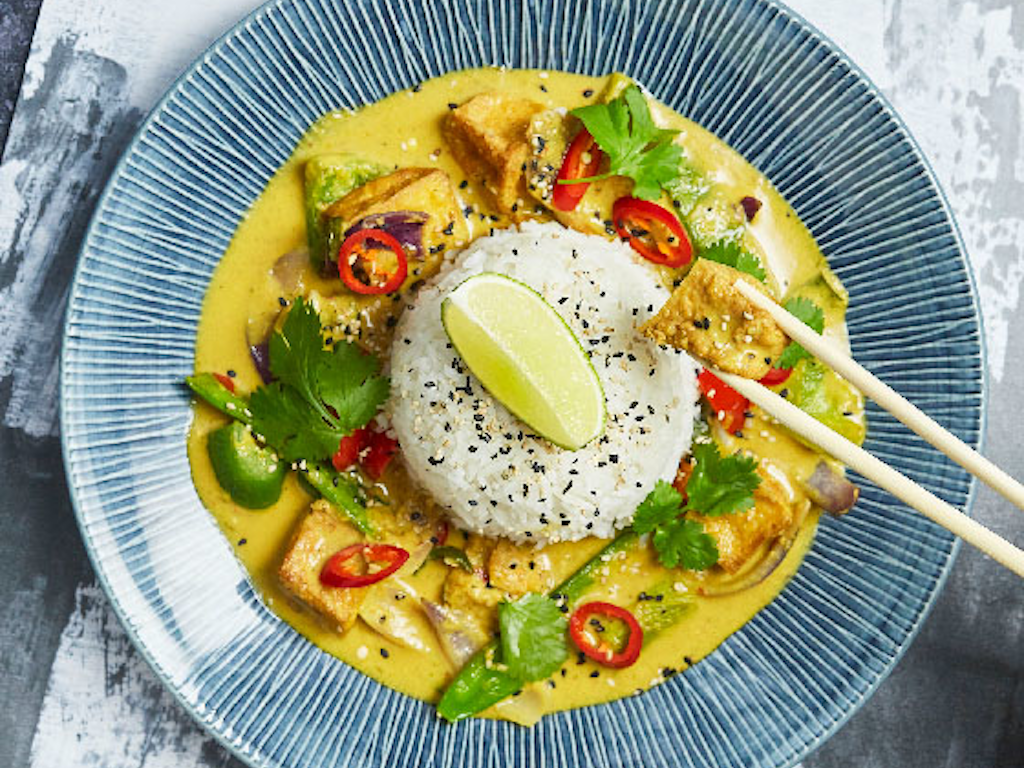3 Mins Read
Wagamama, the popular fusion restaurant chain in the U.K., with over 150 locations, has just committed to making 50% of its menu meat-free in 2021 and has just debuted its brand new vegan menu in line with the Veganuary movement. Among some of the 100% plant-based dishes in the new menu include vegan chilli squid, sticky “ribs” and a duck-free Japanese donburi.
Famous for its katsu curries and stir-fried noodles, Wagamama is now introducing plant-based versions of some of its cult classics in a bid to make its entire operations more sustainable this year. To mark the beginning of its pledge to make 50% of its menu completely meat-free across its more than 150 locations globally, 130 of them in the U.K., the chain has debuted its new vegan menu that will feature for Veganuary, the popular movement encouraging people to go vegan for 31 days.
Officially launched in the first week of January this year, the new menu includes vegan sticky “ribs” made from soy and mushroom protein, and a “No-Duck Donburi” featuring a shiitake mushroom and seitan analogue marinated in a plant-based hoisin sauce. Also on the menu are vegan versions of its famous chilli squid and firecracker curry rice.

So, we’ve launched our most ambitious vegan menu yet, to tempt even the biggest meat lovers to choose vegan this veganuary. Plus, we’re committing to making 50% of our menu meat-free by the end of 2021. It’s not radical. It’s necessary.
Wagamama
In an announcement of its plans to turn half its menu vegetarian and vegan, Wagamama said in a statement: “We believe small choices create big change and collectively we will make a difference. Eating less meat and dairy has been dubbed the most essential and own-able action you can take, to reduce carbon emissions.”
“So, we’ve launched our most ambitious vegan menu yet, to tempt even the biggest meat lovers to choose vegan this veganuary. Plus, we’re committing to making 50% of our menu meat-free by the end of 2021. It’s not radical. It’s necessary.”
While this marks the most ambitious plant-based campaign the restaurant has embarked on, it has not been shy over the past years in its moves to cater to the growing population of vegan and flexitarian eaters. Three years ago, Wagamama introduced a completely plant-based version of its iconic katsu curry dubbed the “Vegatsu”, and has also added other vegan menu items including a ramen dish topped with a vegan egg, created in partnership with renowned vegan chef Gaz Oakley.

This year marks what Veganuary co-founder Matthew Glover has described as the “easiest year ever to go vegan” in an interview with Green Queen, especially as more mainstream restaurant chains like Wagamama and major retailers like M&S and Tesco expand their plant-based offerings in response to skyrocketing demand.
Sales of plant-based foods have spiked in the wake of the coronavirus pandemic, which has exposed the dangers of the meat supply chain and heightened concerns about nutrition, well-being and sustainability. According to market research firm Mintel, the British plant-based market is expected to reach £1.1 billion (US$1.43 billion) within three years time, putting the country ahead of neighbouring markets such as Germany, where plant-based meats are also significantly rising in popularity.
Just before the turn of the new year, data published by food delivery giant Deliveroo has also revealed a whopping 115% increase in the number of vegan food orders in the U.K. market since November 2019. Meanwhile, Manchester-based Get Vegan Grub, which offers only 100% plant-based options, has seen its popularity skyrocket over the past months, prompting it to start introducing its services to London in 2021.
All images courtesy of Wagamama.




